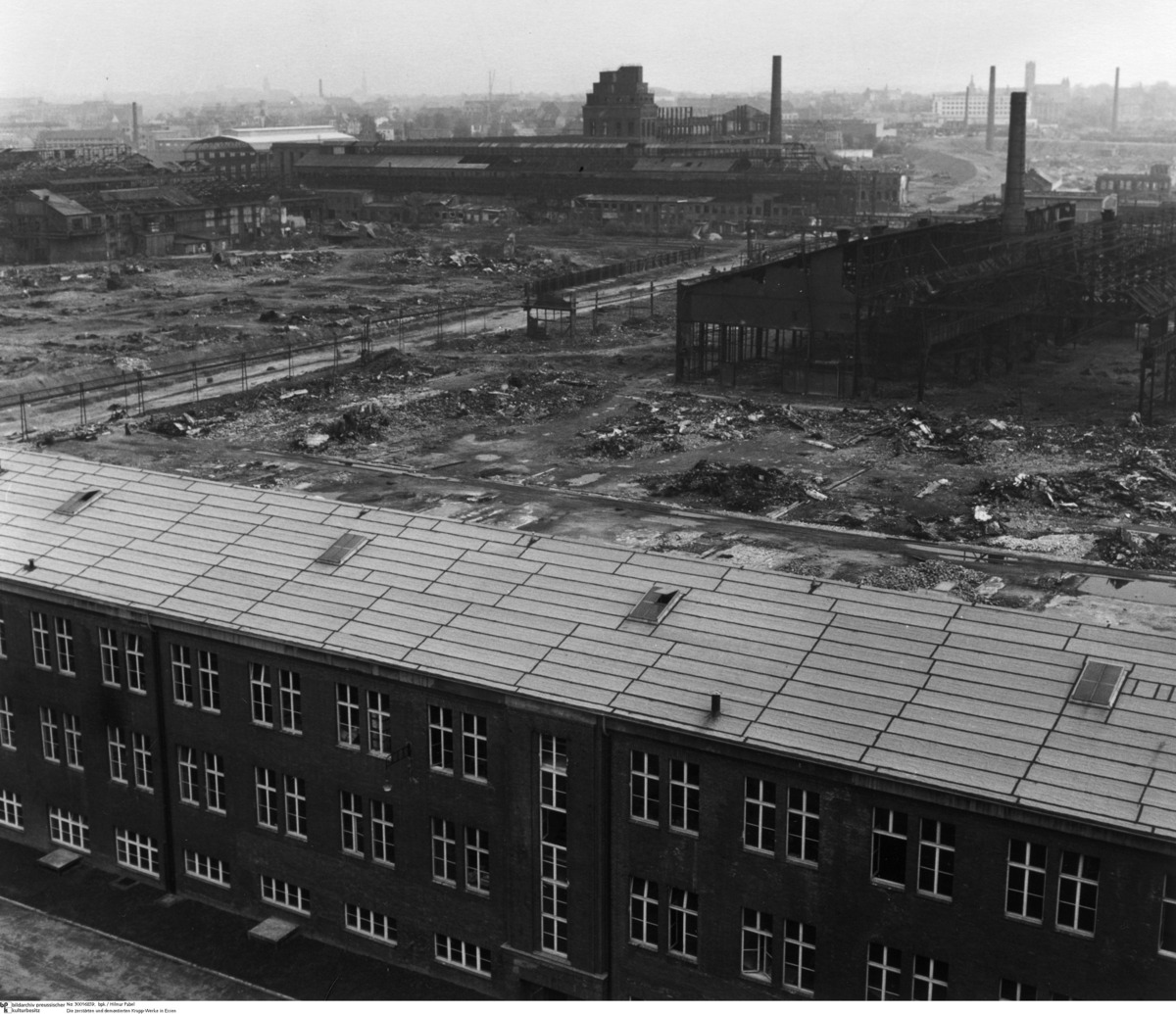Abstract
Since the mid-nineteenth century, the Krupp works had served as one
of the greatest symbols of the German arms industry. During the Second
World War, the firm had played an important role in the production of
artillery, tanks, and submarines under the direction of Gustav Krupp von
Bohlen und Halbach and, starting in 1943, his son Alfried. Moreover, it
had also employed tens of thousands of forced laborers. In implementing
the Allied policy of reparations, demilitarization, and decartelization,
British occupation authorities gave special attention to the Krupp
works, not least to court public opinion in their own country. The
modern metallurgical plant in Essen-Borbeck, which had only been in
operation since 1929, was given to the Soviet Union at the end of 1945
as reparation; it was completely dismantled and delivered to the
Soviets. It would have been relatively easy to manage a shift to
peacetime production, but the British opted for the deliberately hard
stance of dismantlement.
